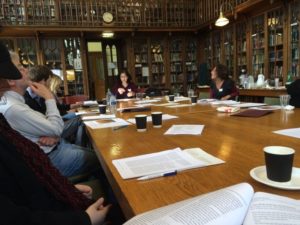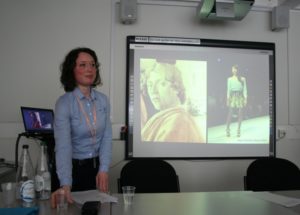The Scottish Branch of the Society supports research, teaching and other related activities that promote study of the Renaissance period north of the border. There are several Scottish-based academic institutions that specialise in the study of Renaissance culture and are actively involved in fostering research and disseminating knowledge about this period. They include the Centre for Early Modern Studies at the University of Aberdeen, the Centre for Medieval and Renaissance Studies at the University of Edinburgh and the Early Modern Seminar in Scotland (EMSIS).
Each year the Scottish branch funds two conference travel grants of £150 each for postgraduate and postdoctoral scholars resident in Scotland – the call for applications opens in November. In 2014 Dr. Lucinda Dean (University of Stirling) and Dr. Irene Mariani (University of Edinburgh) were awarded grants to present research papers at the Renaissance Society of America’s Annual Meeting at the Humboldt University of Berlin and the Association of Art Historians’ Annual Conference at the University of East Anglia, respectively. In addition, small support grants were also awarded to Beyond Leeches and Lepers: Medieval and Early Modern Medicine postgraduate-organised, public-engagement conference at the University of Edinburgh and Reviving the Dead: Classical Imitation in Renaissance Literature, a symposium at the University of Aberdeen. In recent years, the online annual, peer- reviewed Journal of the Northern Renaissance was launched with the support of the Society for Renaissance Studies in Scotland and released its sixth issue, on Numbers in Early Modern Writing, in 2014.
The Society for Renaissance Studies Scottish Branch would welcome applications for academic activities and for collaborative events with museums, galleries, libraries and archives. If you wish to seek funding for research events relating to the Renaissance period, please send an application in the form of an e-mail, detailing the nature of the event and the sum sought, to the Scottish Representative, Syrithe Pugh. It should be stressed that the Scottish fund is not extensive and it is envisaged that only contributions (rather than comprehensive grants) can be made towards the financing of relevant academic events.


